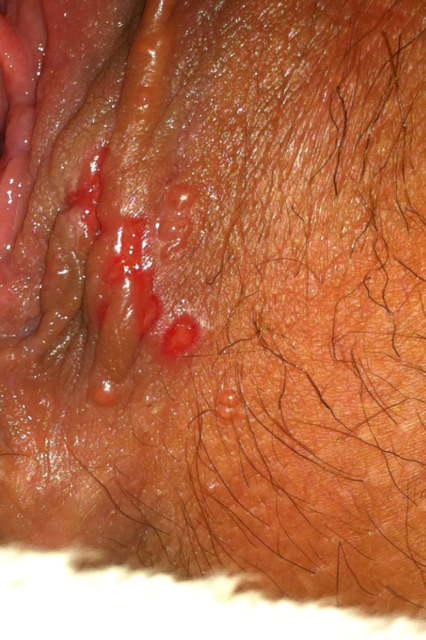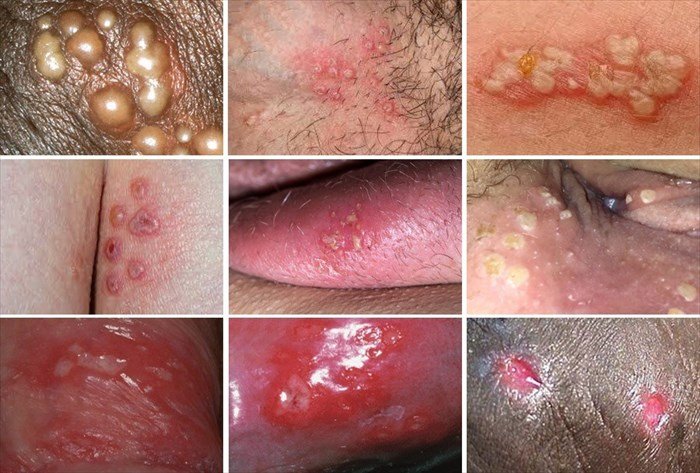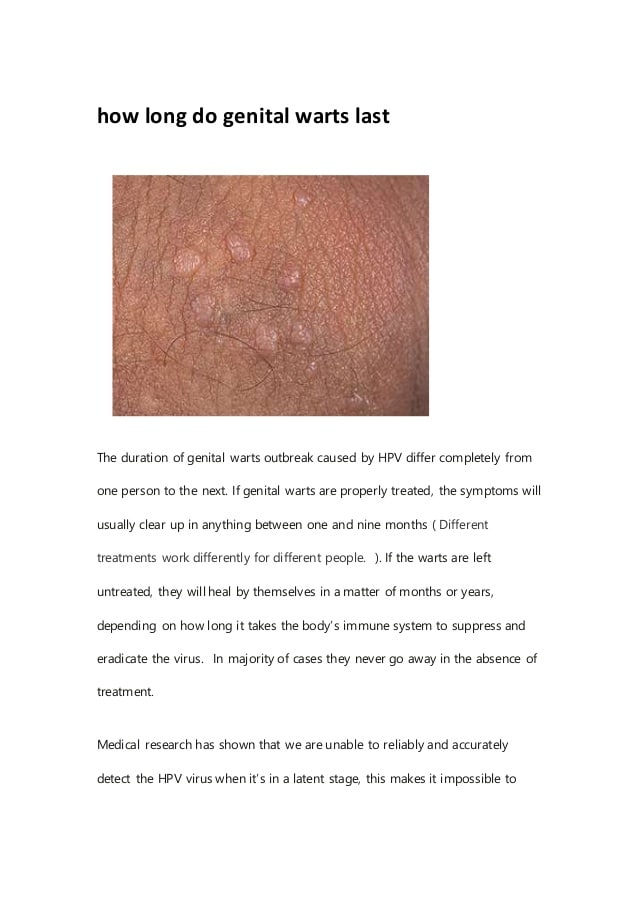Herpes Outbreaks: How Long Do They Last And How To Treat Them
Herpes is one of the most common sexually transmitted diseases in the world. Many people have herpes and show no symptoms, which makes the disease very transmittable.
For many men and women, herpes outbreaks can be daunting, embarrassing, and even frustrating. These outbreaks lead to painful sores, embarrassing conversations, and trial and error treatment options.
To best understand how to manage herpes outbreaks, first, you need to be familiar with the STD itself.
What is Herpes?
Herpes is a viral infection that usually causes small, painful blisters on or around the genital or rectal areas. These sores or blisters are commonly referred to as herpes lesions. Herpes lesions can also appear on the mouth or face.
Herpes simplex virus is the most common form of the disease and is transmitted through direct contact with an infected area or through the sharing of contaminated personal items, such as razors, towels, and clothing.
What are the Symptoms of Herpes?
Not everyone with herpes has symptoms. When symptoms do appear, they usually appear within 2 to 12 days after exposure to the virus. Some people with herpes never have any symptoms.
Symptoms include:
- Redness and itching around the infected area
- Small, painful blisters that ooze or bleed
- General sense of discomfort
The duration of the herpes outbreak depends on the person. Some people have outbreaks once a month, while others have outbreaks once a year.
How Is Herpes Diagnosed?
- Topical Treatments
How Is Genital Herpes Treated
Herpes has no cure. But antiviral medicines can prevent or shorten outbreaks during the time you take the medicine. Also, daily suppressive therapy for herpes can lower your chance of spreading the infection to your partner.
Your doctor will either give you antiviral medicine to take right after getting outbreak symptoms or to take regularly to try to stop outbreaks from happening. Talk to your doctor about treatment options.
During outbreaks, you can take the following steps to speed healing and prevent spreading herpes to other parts of your body or to other people:
- Keep sores clean and dry.
- Try not to touch the sores.
- Wash your hands after any contact with the sores.
- Avoid all sexual contact from the time you first notice symptoms until the sores have healed.
How Do I Talk To My Sex Partners
Telling them about your condition can be hard. Take some time to learn what you can and understand your own feelings first. You may be more at ease to talk openly.
Some people you tell might not think its such a big deal. Others will have strong feelings about it.
You cant control how anyone else reacts. All you can do is share what you know, answer questions, and give them time to think about it.
Recommended Reading: What Medicine Prevents The Spread Of Herpes
Try Taking The Supplement Lysine
In terms of taking supplements to prevent breakouts, I especially recommend L-lysine. This is the primary supplement for herpes, Gade says. L-lysine is an amino acid, a building block of protein. When you have an outbreak, it can be taken orally to shorten the outbreak in conjunction with an antiviral medication.
Lysine appears to be useful in reducing the number and the severity of outbreaks. The usual daily dose is between 1 and 3 milligrams.
Some studies suggest that taking lysine regularly may help prevent outbreaks of both cold sores and herpes sores. In Gades experience, patients have had no side effects using lysine. In some people, though, there have been reports of the supplement causing abdominal pain and diarrhea.
Also Check: Can You Kiss Someone With Herpes
How Does Genital Herpes Affect A Pregnant Woman And Their Baby

Outbreaks of genital herpes during pregnancy have been associated with miscarriage, stillbirth, prematurity, and herpes infection that can cause severe brain injury and possible blindness in the baby. In most cases, women with herpes give birth to healthy babies. If you have herpes and plan to have children, talk to your doctor.
Don’t Miss: How To Protect Yourself From Genital Herpes
Frequently Asked Questionsexpand All
People with HSV-2 infection have an increased risk of getting human immunodeficiency virus if they have sex with an HIV-infected partner. Taking suppressive therapy does not decrease this risk.
If a woman is pregnant and infected with HSV, it can be passed to the fetus during birth while passing through the womans infected birth canal. This is most likely to occur if a woman first becomes infected with HSV during pregnancy and in a woman who has her first outbreak late in pregnancy. But it also can occur during a recurrent outbreak in a woman who was infected before pregnancy, although the risk is much lower.
If you have sores or warning signs of an outbreak at the time of delivery, you may need to have a cesarean delivery to reduce chance of infection. The decision depends on many factors, including where the sores are on your body and whether the fetus would come into contact with them during delivery.
Yes, in most cases. The herpes virus cannot be passed to a baby through breast milk. However, the baby could get infected by touching a sore on your body. Make sure any sores that the baby could come into contact with are covered when you hold your baby or while breastfeeding. Wash your hands with soap and water before and after feeding your baby. If you have sores on your breast, you should not breastfeed your baby from that breast.
Article continues below
How Does Genital Herpes Affect Pregnancy
Herpes simplex virus doesnt affect fertility or your ability to conceive. Pregnant women diagnosed with HSV-2 should start a daily antiviral at 36 weeks of pregnancy as prescribed, to prevent outbreaks during delivery. If you have an active infection at the time of childbirth, you can pass the herpes virus to your baby. Neonatal herpes puts a baby at risk for blindness, brain damage, skin infections and death. Your healthcare provider will perform a cesarean section to lower this risk.
Also Check: How To Make Oral Herpes Go Away Faster
Do Herpes Flare Ups Go Away
Herpes outbreaks usually last for about one to two weeks, though the first outbreak after infection may last longer. The symptoms typically go away on their own without treatment. However, there are at-home remedies and prescription treatments which may help to ease symptoms and shorten the length of outbreaks.
Also Check: What Helps Herpes Go Away
What Are The Signs Of Herpes In Women
Like men, women who have HSV-1 or HSV-2 may have no symptoms or signs of the infection. Some women may only have an initial outbreak and no other recurring symptoms. Others may have chronic recurring outbreaks of the herpes virus, and some women may not have an outbreak for months or even years after they have first been infected.
In the first herpes outbreak, symptoms usually start within 2 weeks of contracting the virus. The initial symptoms may include:
-Headache
-Around the buttocks or thighs
-Inside the cervix or urinary tract
Read Also: How Do I Know My Herpes Outbreak Is Over
How To Recognize Genital Herpes
Overview
Genital herpes is a very common sexually transmitted disease . It is so common that many people, when they find any skin lesion around the genital areas, are likely to think that it is herpes. They are not entirely wrong to think that way. Genital herpes is the main cause of genital ulcers worldwide.1 And the condition is usually associated with a stigma that can itself cause anxiety and even depression2 and might influence the affected personâs decision to disclose the infection to others or seek care.3
A genital sore is not great news regardless of what is causing it. However, many other conditions causing genital sores have a prognosis different from that of herpes. Some can be worse, but others, unlike herpes,4 can be completely cured. Thatâs why weâre beginning this article with an explanation of how to recognize genital herpes and differentiate it from other genital skin lesions.
A sleeping virus
The herpes virus is known for staying âasleepâ in the body for a long time without showing symptoms. This feature is called latency: once the virus infects a person, after an initial phase that does not necessarily manifest with symptoms, it remains hidden in the body for many years, reactivating every now and then.4 Its reactivation is usually triggered by weakness of the immune system, such as in times of sustained stress, accumulated fatigue, heavy physical activity, or fever, but may not have any apparent cause.5, 6
Herpes skin lesions
Recurrent Episodes Of Genital Herpes
Recurrences are usually less painful and shorter in duration than the first episode of genital herpes. Over time, episodes usually become less frequent and may eventually stop altogether. Infections caused by HSV1 are less likely to recur in the genital area than infections caused by HSV2.
Recurrences may be triggered by:
Recommended Reading: Misdiagnosis Of Herpes Blood Test
Can Genital Herpes Be Prevented
The only sure way to keep from getting genital herpesor any other sexually transmitted infection is to not have sex. If you do have sex, practice safer sex.
- Before you start a sexual relationship, talk with your partner about STIs. Find out whether he or she is at risk for them. Remember that a person can be infected without knowing it.
- If you have symptoms of an STI, dont have sex.
- Dont have sex with anyone who has symptoms or who may have been exposed to an STI.
- Dont have more than one sexual relationship at a time. Having several sex partners increases your risk for infection.
- Use condoms. Condom use lowers the risk of spreading or becoming infected with an STI.
- Dont receive oral sex from partners who have cold sores.
Taking medicine for herpes may lower the number of outbreaks you have and can also prevent an episode from getting worse. It also lower the chances that you will infect your partner.
If you are pregnant, you should take extra care to avoid getting infected. You could pass the infection to your baby during delivery, which can cause serious problems for your newborn. If you have an outbreak near your due date, you probably will need to have your baby by caesarean section. If your genital herpes outbreaks return again and again, your doctor may talk to you about medicines that can help prevent an outbreak during pregnancy.
What Should I Do If I Have Genital Herpes

If you have genital herpes:
- See a doctor or nurse as soon as possible for testing and treatment.
- Take all of the medicine. Even if symptoms go away, you need to finish all of the antiviral medicine.
- Tell your sex partner so they can be tested and treated if necessary.
- Avoid any sexual contact while you are being treated for genital herpes or while you have an outbreak.
- Remember that genital herpes is a lifelong disease. Even though you may not have a genital herpes outbreak for long periods of time, you can still pass the virus to another person at any time. Talk with your doctor or nurse about how to prevent passing the virus to another person.
Recommended Reading: Will Genital Herpes Clear On Its Own
Im Pregnant What Do I Need To Know
To get the best care, tell your doctor you have genital herpes, because it could make you more likely to have a miscarriage or give birth too soon.
Its possible to pass along the virus to your baby. For infants, it can be life-threatening. Your doctor can talk to you about how to lower the chances that this will happen.
If you have an outbreak while youre pregnant, your doctor can give you medicine to treat your symptoms and stop them sooner.
Your doctor may give you a drug to prevent an outbreak as your due date gets closer. This is because your baby could get herpes by passing through your birth canal if youre having an outbreak when you go into labor. If thats a possibility, your doctor will most likely want to do a C-section, which is surgery to deliver the baby.
Continued
What Is Herpes Simplex
Herpes simplex is a virus that causes skin infections. The infection lasts your lifetime, and it causes painful or itchy sores and blisters that come and go. Herpes simplex virus typically doesnt cause severe problems. But it can be dangerous in infants and people with weakened immune systems. There are two types of herpes simplex:
- Herpes simplex 1 tends to affect your mouth or face. It causes cold sores. HSV-1 spreads through contact with saliva .
- Herpes simplex 2 is a sexually transmitted disease . It causes sores on skin that comes in contact with the genitals of an infected person.
Sometimes a herpes infection can affect other parts of your body, such as your eyes or other parts of your skin.
You May Like: Is It Safe To Date Someone With Herpes
What Does A Herpes Outbreak Feel Like
As mentioned above, the onset of a herpes outbreak is often associated with tingling, itching, or burning around the affected area.
Blisters and ulcers are unfortunately painful and can cause discomfort.
If this is your first outbreak your symptoms will likely be worse than any recurring outbreaks. Common symptoms associated with initial outbreaks are fever, headache, and other flu-like symptoms.
Is It Possible To Prevent Genital Herpes
- Herpes can be spread both during an outbreak and by infected people even when there is no outbreak of the condition, so prevention can be difficult.
- While condoms may help prevent the spread of genital herpes to sexual partners during sexual activity, the infection also can be spread from skin contact in areas not covered by a condom, or during oral to genital contact.
- If you are having an outbreak, thorough hand washing and not sharing clothing that has touched the herpes sores can also help prevent transmitting the virus to others.
Don’t Miss: What Does Oral Herpes Look Like
Initial Outbreak Of Genital Herpes
A person’s first outbreak of HSV-2 tends to last longer than subsequent outbreaks. Some people develop an outbreak quickly after contracting the herpes virus, while others don’t have symptoms that appear for several months or even years. Some lucky people never develop symptoms at all.
The initial episode of genital herpes also tends to be more painful than future outbreaks. Many people develop flu-like symptoms during their initial outbreak. These can include headache, fever, body aches, swollen lymph nodes and tiredness.
The first outbreak of HSV-2 can last between two and four weeks.
Who Might Get Herpes Simplex
People of any age can contract herpes simplex. You are more likely to get the virus if you:
- Were assigned female at birth.
- Have had multiple sex partners.
- Started having sex at a young age.
- Have a history of any sexually transmitted infection .
- Have a weakened immune system.
- Dont use condoms for intercourse and dental dams for oral sex.
Who gets HSV-1, commonly known as oral herpes?
Anyone can get HSV-1. Most people contract HSV-1 during childhood. It spreads when an adult who has the virus has close contact with a child, such as when a family member kisses a child.
Who gets HSV-2, commonly known as genital herpes?
Genital herpes affects sexually active teens and adults of all genders and races. It can spread if you have multiple sexual partners and dont use condoms or dental dams.
People assigned female at birth are more at risk. Delicate vaginal tissue can tear, making it easier for the infection to get in. Black people who were AFAB are especially vulnerable, with an estimated 1 in 2 people AFAB between the ages of 14 and 49 infected with HSV-2.
Also Check: How Long Does First Genital Herpes Outbreak Last
Herpes Rash On Various Body Parts
The first outbreak typically occurs two to 12 days after contracting the virus, and the sores usually last for about seven to 10 days.
Most people with a herpes infection will not develop symptoms or will experience only a mild rash.
A classic herpes outbreak usually involves one or more blisters that start as small red bumps. They may resemble a group of pimples or ingrown hairs. They then progress to fluid-filled blisters before rupturing and oozing fluid that crusts over. Its common to feel tingling, itching, or burning a day or two before the rash appears.
Herpes sores usually present around the mouth or genital area. Oral herpes appears as cold sores on the lips or around the mouth. The sores may be painful and itchy.
Touching herpes sores can transfer the virus to your fingers and then any other body part that you touch. If you accidentally touch an open herpes sore, wash your hands right away to prevent spreading it to other areas of your body.
It is also possible to experience herpes gladiatorum, a skin infection that can appear anywhere on the body and is spread by skin-to-skin contact. Herpes gladiatorum, also known as mat herpes, is commonly found in athletes, such as wrestlers who experience skin-to-skin contact in their sport. It is also commonly found in military service members who undergo hand-to-hand combat training.
Onset Of First Outbreak

The first outbreak of oral herpes usually develops within about one to three weeks after infection. This initial outbreak may last for up to three weeks.
With genital herpes, the first outbreak usually occurs within about two to 20 days. Similar to oral herpes, the initial outbreak may last as long as three weeks.
Read Also: Can You Use Preparation H On Genital Herpes